- Author Jason Gerald gerald@how-what-advice.com.
- Public 2023-12-16 10:50.
- Last modified 2025-01-23 12:04.
In Microsoft Word, you can do more than just process words. You can create charts and graphs, add media, and draw or format shapes. These quick and easy steps will show you how to draw a three-dimensional shape or add a three-dimensional effect to an existing shape. Before you begin, make sure you've updated Microsoft Word to the latest version.
Step
Method 1 of 3: Drawing Three-Dimensional Objects
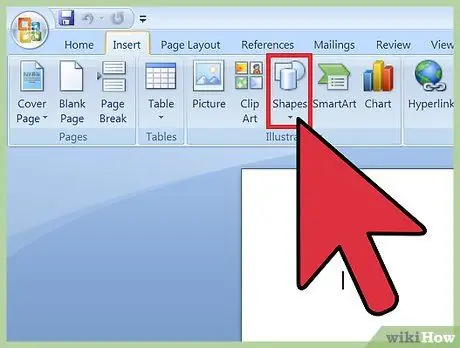
Step 1. Select “Insert” > “Shape”
You can find the “Insert” menu at the top of the screen.
- For Mac computer users, the Shapes menu is on the right side of the screen.
- PC users can access the shape options from the drop-down menu.
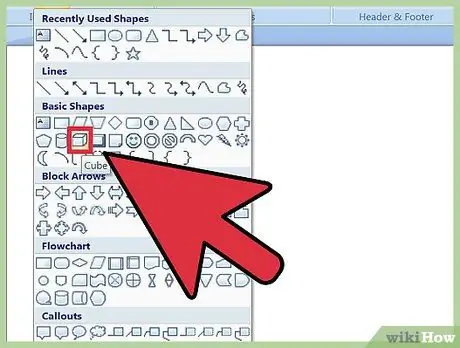
Step 2. Select a three-dimensional shape
As you browse the available options, you can see a number of formatted three-dimensional objects, including cubes, cylinders (cans), and other shapes with bulges or bevels. Click the desired shape to select it.
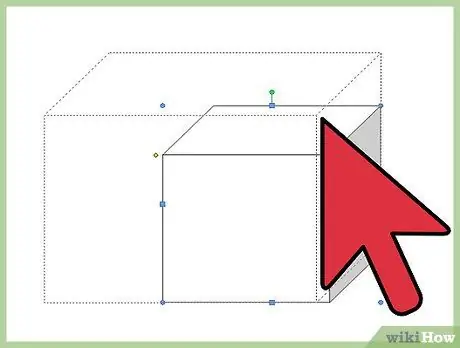
Step 3. Draw a three-dimensional shape
Click any section can document. The shape will be displayed in the previously defined size (usually equal to or close to a “1 x 1” ratio).
You can also click and drag the cursor to draw a shape in the desired dimensions
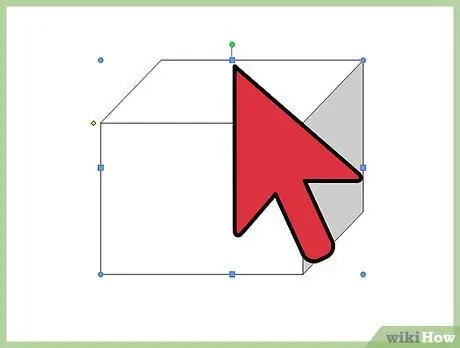
Step 4. Change the shape
You can change the shape by clicking on it to display the resize boxes. Click and drag the boxes to change the size of the shape and the direction of the faces.
Method 2 of 3: Turning Two-Dimensional Objects Into Three-Dimensional Objects
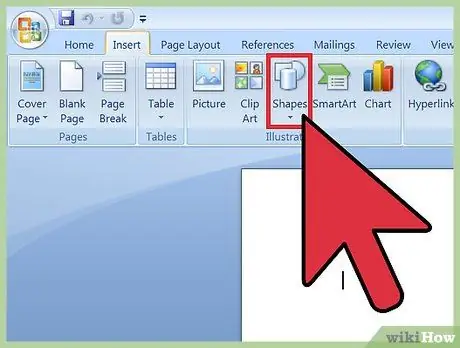
Step 1. Select “Insert” > “Shape”
You can find the “Insert” menu at the top of the screen.
- For Mac computer users, the Shapes menu is on the right side of the screen.
- PC users can access the shape options from the drop-down menu.
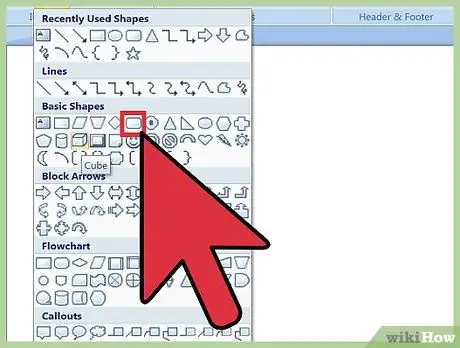
Step 2. Draw a two-dimensional object
Select the two-dimensional object that you want to turn into a three-dimensional object. Click an empty part of the document to display the object.
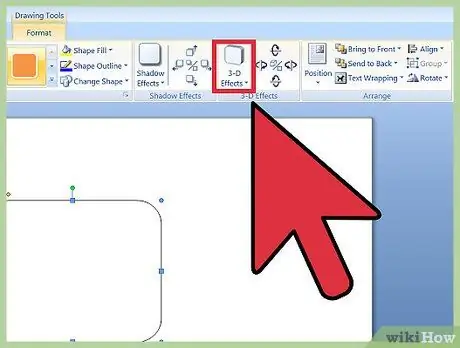
Step 3. Open the “Format” menu
Right-click the shape (for Mac users, hold down the Ctrl key while clicking) and select “Format Shape”.
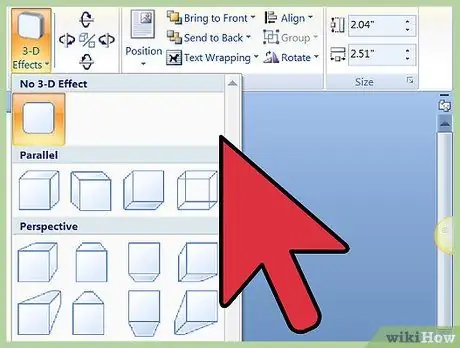
Step 4. Rotate the object in three dimensions
Select “3-D Rotation” and use the rotation buttons to rotate the shape on the X, Y, and Z axes. Experiment with the rotation until the shape is facing the desired direction.
You will need to rotate the shape based on the X or Y axis to see the depth of the added volume
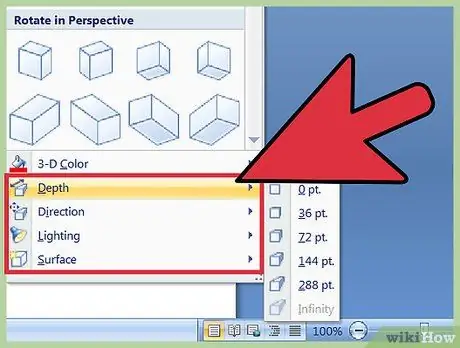
Step 5. Add depth or volume to the object
On the "Format Shape" menu, select " 3-D Format ” > “ Depth and Surface " Increase the " Depth " number to the desired depth and observe the change of the object from a two-dimensional shape to a three-dimensional shape.
- You can experiment with the X, Y, and Z depth and angle values until you're satisfied with how the object looks.
- Menus " 3-D Format” > “Bevel ” allows you to add more three-dimensional effects to the top and bottom of the object.
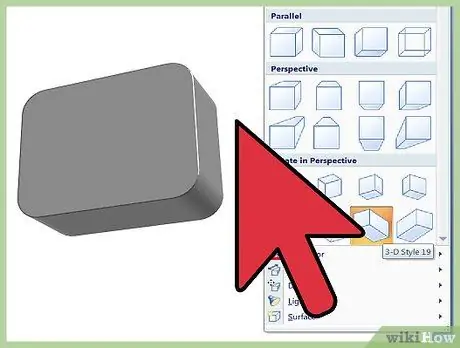
Step 6. Click “Ok” once done
Method 3 of 3: Adding a Three-Dimensional Effect to Text and WordArt
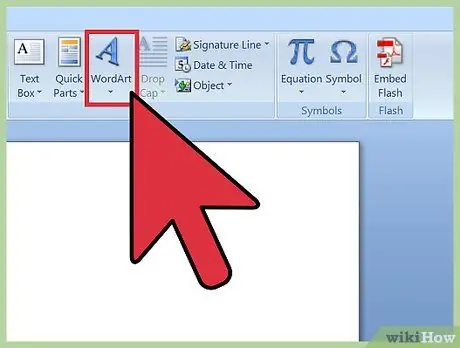
Step 1. Add a text field or WordArt
Choose " Insert” > “Text Box " or " Insert” > “WordArt " The “Insert” menu is at the top of the screen. Draw a box and type the desired text into the column.
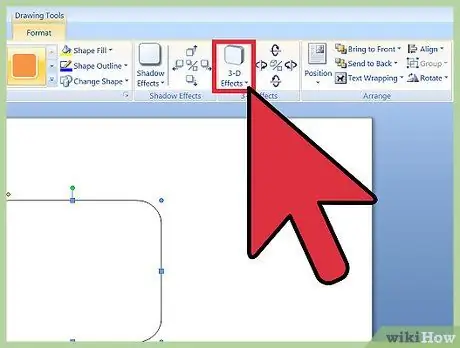
Step 2. Add a three-dimensional effect to the box
Right-click (for Mac users, hold down the Ctrl key while clicking) the WordArt or text field and select “Format Shape” from the drop-down menu. In the " 3-D Rotation " section, change the X and/or Y axis numbers. In the " 3-D Format " section, increase the shape depth number.
- You can experiment with the X, Y, and Z depth and angle numbers until you're satisfied with the three-dimensional appearance of the object.
- To better see the three-dimensional effect added to the object, change the fill color in the " Format Shape " menu.
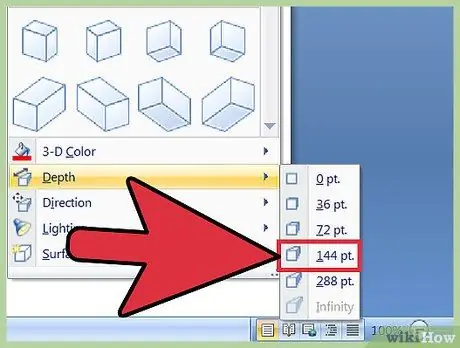
Step 3. Add a three-dimensional effect to the letters
Right-click (for Mac users, hold down the Ctrl key while clicking) the WordArt or text field and select “Format Text Effects” from the drop down menu. In the " 3-D Rotation " section, change the X and/or Y axis numbers. In the " 3-D Format " section, increase the shape depth number.
To better see the three-dimensional effect added to the object, change the fill color in the " Format Text Effects " menu
Tips
- If you've never created a three-dimensional object before, it's a good idea to start with simple shapes.
- You can experiment with coloring and adding shadows on the menu " Format Shape” > “Fill " and " Format Shape” > “3-D Format” > “Depth and Surface ”.






